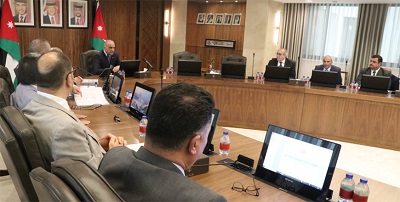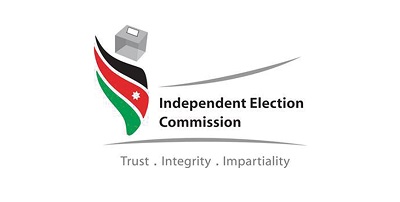UPR report launched, ready for discussion in Geneva
By Maram Kayed, The Jordan Times
AMMAN — The government’s Universal Periodic Review of Human Rights (UPR) was released on Monday which listed a number of improvements in human rights witnessed in Jordan during the past four years, primarily the mandatory quota in jobs allocated for the persons with disability.
The UPR, which is a review of the human rights records of all UN member states, is conducted every four and a half years by the UN member states on a national level, and then discussed jointly in Geneva.
The Kingdom is due to review the report before the United Nations Human Rights Council on November 8 in Geneva, the Jordan News Agency, Petra, reported.
The report, a copy of which was made available to The Jordan Times, described the mandatory 4 per cent quota of available jobs at governmental and non-governmental entities reserved for people with disabilities as a “significant” achievement in the rights of this segment of the society.
The UPR listed other achievements to women rights and empowerment, including the abolition of Article 308 in the Penal Code which allowed sexual assault perpetrators to escape punishment if they marry their victims, as well as the launch of the national anti-pre-pubescent marriage campaign under the motto “She is Too Young to Get Married”.
Another major achievement listed in the UPR with regard to children rights is the separation of juvenile prisons from other prisons for the purposes of “rehabilitation”. New laws were also passed to ensure that child beggars are not prosecuted but are instead transferred to child protection services.
During the launch ceremony, Government Coordinator for Human Rights Basel Tarawneh told The Jordan Times that a total of 250 improvements in human rights have been accomplished in the country over the past four years, ranging between awareness-raising events to creating specialised public entities. “Yet, there are legislative and technical obstacles in the way.”
“Some recommendations are only halfway addressed or worked on because some changes need approval of the government and Parliament. This takes time,” he added.
“This time, we have offered the government a platform to present their report. We need to scrutinise and reflect on it for the next two months, and check if it’s in line with our findings and with international NGO’s findings as well,” said Ahmad Awad, director of Phenix Centre for Economic and Informatics Studies, to The Jordan Times, after Monday’s session.
Sameer Jarrah, human rights expert, told The Jordan Times that the cooperation between civil societies and the government has “witnessed dramatic change thanks to the government’s creation of its human rights coordinator”.
“Even with the newly founded cooperation, there are still some points that civil societies feel that the government needs to address,” he added.
According to Awad, there are 35 human rights recommendations listed in the 2014 report that are still not addressed by the government. “Civil societies strongly feel that the issues standing in the way of considering the recommendations need to be seriously discussed.”
Latest News
 'Sinwar Above Ground': Hamas official's revelation shocks Israeli Occupation
'Sinwar Above Ground': Hamas official's revelation shocks Israeli Occupation US president signs bill to provide new aid for Ukraine
US president signs bill to provide new aid for Ukraine Prime minister directs government to support IEC ahead of upcoming elections
Prime minister directs government to support IEC ahead of upcoming elections Parliamentary elections for 20th Lower House to be held on September 10 – IEC
Parliamentary elections for 20th Lower House to be held on September 10 – IEC Amman Chamber of Commerce says GDP grows by 4.4% in 2023
Amman Chamber of Commerce says GDP grows by 4.4% in 2023
Most Read Articles
- Palestinian prime minister, Jordanian ambassador discuss humanitarian efforts in Palestine
- US president signs bill to provide new aid for Ukraine
- Senate president, Rwanda’s ambassador discuss bilateral relations
- Prime minister directs government to support IEC ahead of upcoming elections
- 'Sinwar Above Ground': Hamas official's revelation shocks Israeli Occupation
- “Israel” withdraws main infantry brigade from Gaza
- Iran cuts Syria presence after strikes blamed on Israel —monitor
- European Parliament overwhelmingly condemns Iranian strikes against “Israel”
- US Supreme Court seems split on Idaho abortion ban
- Vaccines saved at least 154 million lives in 50 years — WHO